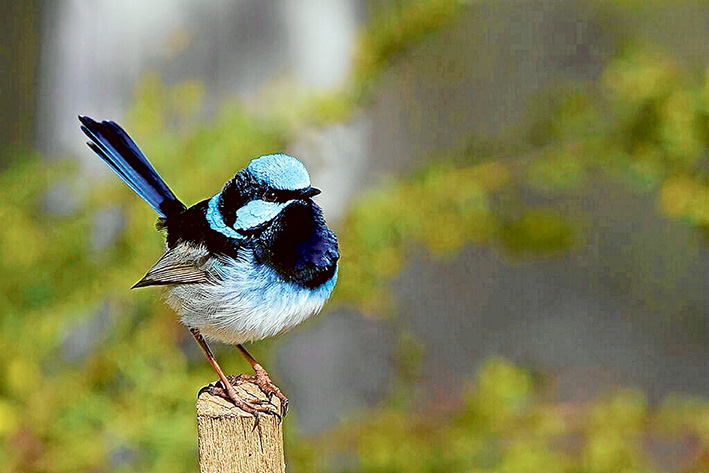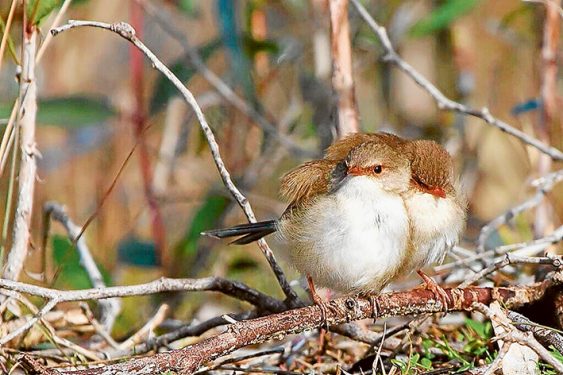
 A SWEET and dainty backyard buddy on the Mornington Peninsula proves you just can’t judge a book by its cover. As breeding season kicks off for cute little fairy-wrens, so begins their long list of illicit affairs.
A SWEET and dainty backyard buddy on the Mornington Peninsula proves you just can’t judge a book by its cover. As breeding season kicks off for cute little fairy-wrens, so begins their long list of illicit affairs.
There are nine species of fairy-wrens in Australia currently partnering for the breeding season. The most common wren in Victoria is the superb fairy-wren.
“Fairy-wrens are super cute with beautiful feathers and have delightful personalities, so it’s no wonder the superb fairy-wren was voted Australia’s favourite bird,” said Susanna Bradshaw, CEO of the Foundation for National Parks and Wildlife.
“But behind their fluffy appearance, there lies a tangled web of torrid affairs and deceit. They appear to have a picture-perfect family unit with mum and dad busily rearing their young each year. Some of their offspring even stick around to help feed the next brood of chicks.
“Dad will go to great lengths to protect the family territory from other males, while also sharing child-rearing duties. However, just before dawn, the illusion of family duty and marital fidelity is shattered.
“Both mum and dad will often disappear to neighbouring territories, before the sun rises, for romantic forays with other fairy-wrens. Mum may seek out a suitor who recently gave her a pretty flower as a gift, while dad may court other females.
“This unashamed infidelity isn’t just a one-off; it is so common that up to three-quarters of all fairy-wren broods can be sired by other males. It’s not surprising they are the most unfaithful birds in the animal kingdom.
“Being unfaithful in the bird world is a lot more common than many people realise. It has benefits as laying lots of eggs fertilised by different males can increase the genetic health of the fairy-wren population.”
Fairy-wren facts
Despite their size, they have a voracious appetite for insects and will eat large quantities of garden bugs.
When the temperature drops, their cuteness factor increases exponentially as they huddle together on branches for warmth.
Males may not look that tough but they’re very brave. When most bird species hear a predator birds calling they will go quiet and try to work out whether they need to take cover. However the male fairy-wren decides this is a great time to loudly sing his own song, probably because he knows more birds will be listening.
Fairy-wrens are incredibly smart. They learn to recognise the alarm calls of many other species, and flee to safety. Scientists liken this being able to understanding multiple foreign languages.
How to attract fairy-wrens to the garden
- Keep pet cats inside or install an outdoor cat run. Cats kill and eat many fairy-wrens, even if they’re well fed and not hungry.
- Plant dense bushes in a corner of the garden – lemon bottlebrush, lemon-scented darwinia, and hakeas.
- Small, insect-attracting flowers are great for males who offer pretty petals to females. These plants also attract insects for them to eat. Try croweas, tea trees and dwarf flowering gums.
- A birdbath near dense bushes will entice them as they like to be close to bushes so they can escape predators.
- Tall trees surrounded by open spaces favour predatory and aggressive birds such as butcher-birds and noisy miners, which chase away fairy-wrens.
The foundation’s Backyard Buddies free program includes a monthly email with tips to make your backyard inviting and safe for native animals.
Details: backyardbuddies.net.au



